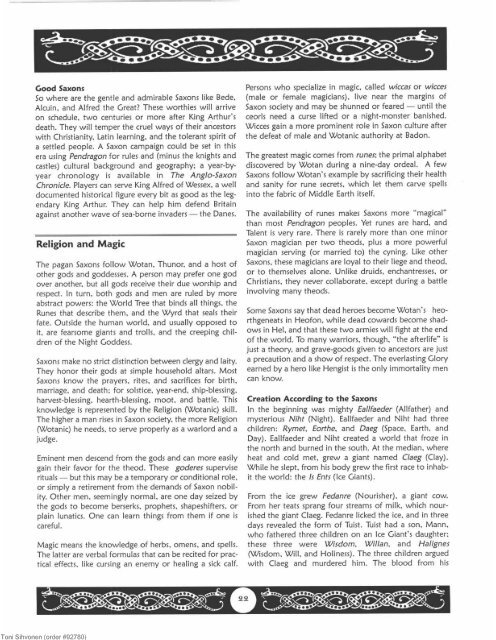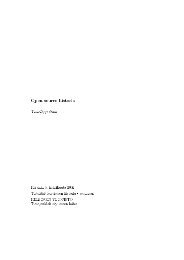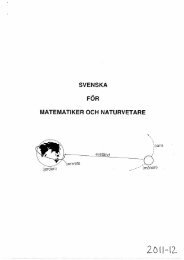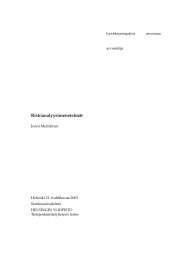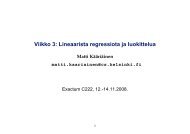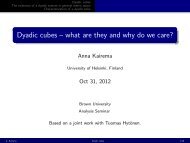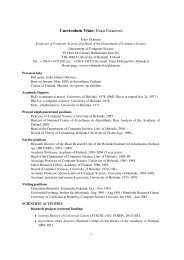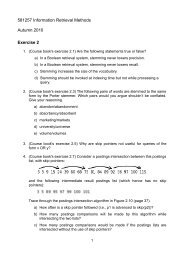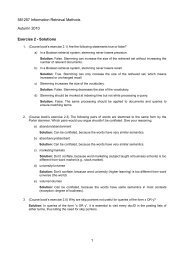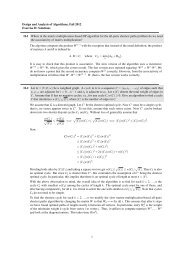Toni Sihvonen (order #92780) 62.142.248.1
Toni Sihvonen (order #92780) 62.142.248.1
Toni Sihvonen (order #92780) 62.142.248.1
Create successful ePaper yourself
Turn your PDF publications into a flip-book with our unique Google optimized e-Paper software.
<strong>Toni</strong> <strong>Sihvonen</strong> (<strong>order</strong> <strong>#92780</strong>) 6<br />
Good Saxons<br />
So where are the gentle and admirable Saxons like Bede,<br />
Alcuin, and Alfred the Great? These worthies will arrive<br />
on schedule, two centuries or more after King Arthur’s<br />
death. They will temper the cruel ways of their ancestors<br />
with Christianity, Latin learning, and the tolerant spirit of<br />
a settled people. A Saxon campaign could be set in this<br />
era using Pendragon for rules and (minus the knights and<br />
castles) cultural background and geography: a year-byyear<br />
chronology is available in The Anglo-Saxon<br />
Chronicle. Players can serve King Alfred of Wessex. a well<br />
documented historical figure every bit as good as the legendary<br />
King Arthur. They can help him defend Britain<br />
against another wave of sea-borne invaders - the Danes.<br />
Religion and Magic<br />
The pagan Saxons follow Wotan, Thunor, and a host of<br />
other gods and goddesses. A person may prefer one god<br />
over another, but all gods receive their due worship and<br />
respect. In turn, both gods and men are ruled by more<br />
abstract powers: the World Tree that binds all things, the<br />
Runes that describe them, and the Wyrd that seals their<br />
fate. Outside the human world, and usually opposed to<br />
it, are fearsome giants and trolls, and the creeping children<br />
of the Night Goddess.<br />
Saxons make no strict distinction between clergy and laity.<br />
They honor their gods at simple household altars. Most<br />
Saxons know the prayers, rites, and sacrifices for birth,<br />
marriage, and death: for solstice, year-end, ship-blessing,<br />
harvest-blessing, hearth-blessing, moot, and battle. This<br />
knowledge is represented by the Religion (Wotanic) skill.<br />
The higher a man rises in Saxon society, the more Religion<br />
(wotanic) he needs, to serve properly as a warlord and a<br />
judge.<br />
Eminent men descend from the gods and can more easily<br />
gain their favor for the theod. These goderes supervise<br />
rituals -but this may be a temporary or conditional role,<br />
or simply a retirement from the demands of Saxon nobility.<br />
Other men, seemingly normal, are one day seized by<br />
the gods to become berserks, prophets, shapeshifters, or<br />
plain lunatics. One can learn things from them if one is<br />
careful.<br />
Magic means the knowledge of herbs, omens, and spells.<br />
The latter are verbal formulas that can be recited for practical<br />
effects, like cursing an enemy or healing a sick calf.<br />
Persons who specialize in magic, called wiccas or wicces<br />
(male or female magicians), live near the margins of<br />
Saxon society and may be shunned or feared - until the<br />
ceorls need a curse lifted or a night-monster banished.<br />
Wicces gain a more prominent role in Saxon culture after<br />
the defeat of male and Wotanic authority at Badon.<br />
The greatest magic comes from runes; the primal alphabet<br />
discovered by Wotan during a nine-day ordeal. A few<br />
Saxons follow Wotan’s example by sacrificing their health<br />
and sanity for rune secrets, which let them carve spells<br />
into the fabric of Middle Earth itself.<br />
The availability of runes makes Saxons more “magical“<br />
than most Pendragon peoples. Yet runes are hard, and<br />
Talent is very rare. There is rarely more than one minor<br />
Saxon magician per two theods, plus a more powerful<br />
magician serving (or married to) the cyning. Like other<br />
Saxons, these magicians are loyal to their liege and theod,<br />
or to themselves alone. Unlike druids, enchantresses, or<br />
Christians, they never collaborate, except during a battle<br />
involving many theods.<br />
Some Saxons say that dead heroes become Wotan’s heorthgeneats<br />
in Heofon, while dead cowards become shadows<br />
in Hel, and that these two armies will fight at the end<br />
of the world. To many warriors, though, “the afterlife” is<br />
just a theory, and grave-goods given to ancestors are just<br />
a precaution and a show of respect. The everlasting Glory<br />
earned by a hero like Hengist is the only immortality men<br />
can know.<br />
Creation According to the Saxons<br />
In the beginning was mighty Eallfaeder (Allfather) and<br />
mysterious Niht (Night). Eallfaeder and Niht had three<br />
children: Rymet, Eorthe, and Daeg (Space, Earth, and<br />
Day). Eallfaeder and Niht created a world that froze in<br />
the north and burned in the south. At the median, where<br />
heat and cold met, grew a giant named Claeg (Clay).<br />
While he slept, from his body grew the first race to inhabit<br />
the world: the Is Ents (Ice Giants).<br />
From the ice grew Fedanre (Nourisher), a giant cow.<br />
From her teats sprang four streams of milk, which nourished<br />
the giant Claeg. Fedanre licked the ice, and in three<br />
days revealed the form of Tuist. Tuist had a son. Mann,<br />
who fathered three children on an Ice Giant’s daughter:<br />
these three were Wisdom, Willan, and Halignes<br />
(Wisdom, Will, and Holiness). The three children argued<br />
with Claeg and murdered him. The blood from his


